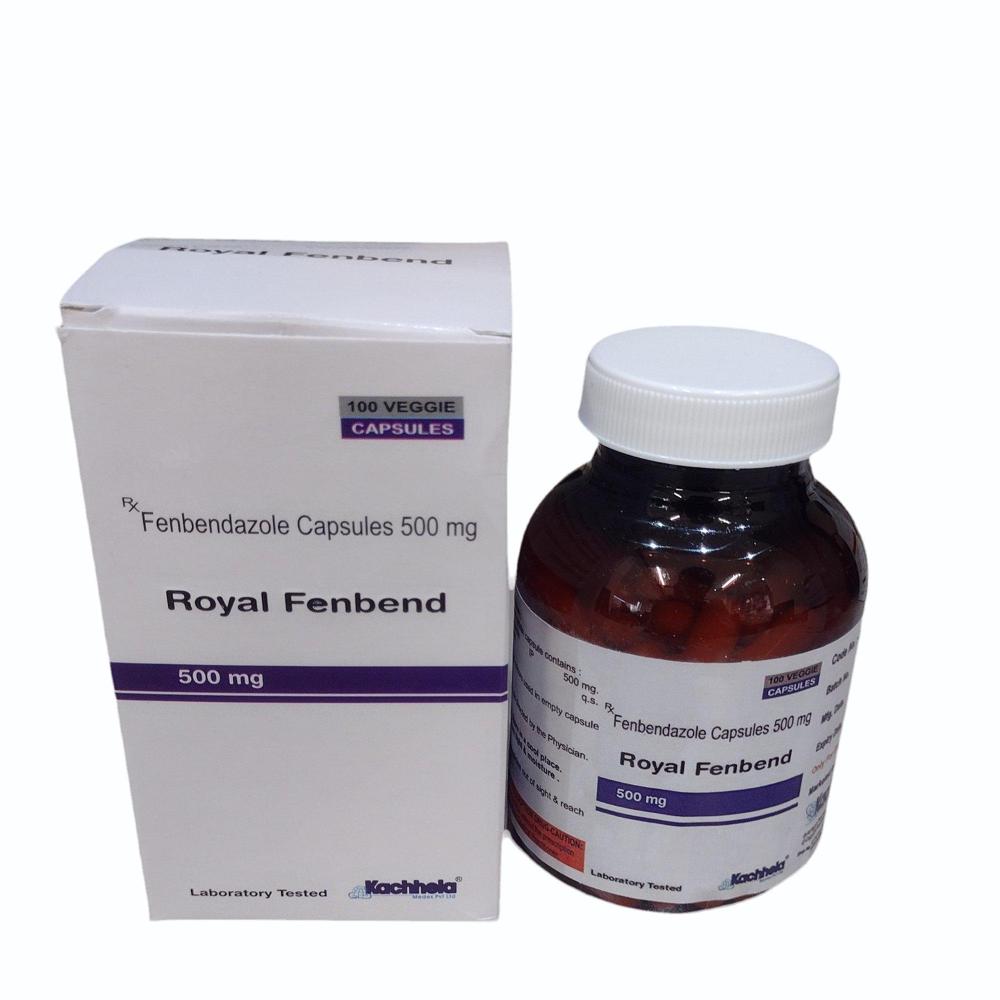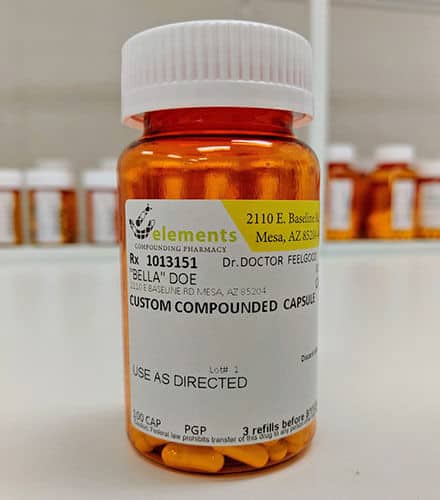fenbendazole: Administration Tips Every Owner Should Know
Wiki Article
Exploring the Systems Behind Fenbendazole and Its Influence on Pet Health
Fenbendazole is a commonly utilized anthelmintic known for its effectiveness versus numerous bloodsuckers. Its primary device includes the inhibition of microtubule development, which disrupts essential processes in these microorganisms. Beyond its antiparasitic buildings, fenbendazole also shows up to enhance immune reactions and possesses anti-inflammatory advantages. Recognizing these complex effects could expose new applications for animal health. Concerns remain concerning its complete possibility and safety profile.The Pharmacokinetics of Fenbendazole
The pharmacokinetics of fenbendazole, a widely made use of anthelmintic in veterinary medicine, involves the study of its absorption, circulation, metabolic process, and excretion within animal systems. After management, fenbendazole is quickly absorbed from the gastrointestinal system, with peak plasma concentrations taking place within hours. Its distribution is affected by variables such as tissue binding and lipid solubility, allowing it to permeate numerous tissues effectively. The drug goes through substantial metabolic rate mostly in the liver, where it is exchanged energetic and inactive metabolites. These metabolites play a role in the drug's overall effectiveness and safety profile. Excretion occurs mainly via feces, with a smaller sized proportion eliminated using pee. The half-life of fenbendazole varies among types, which influences application routines. Understanding these pharmacokinetic residential or commercial properties is important for maximizing its healing use and guaranteeing effective bloodsucker control in vet practices.Devices of Activity Versus Bloodsuckers
Fenbendazole exerts its antiparasitic effects mostly with the restraint of microtubule formation in parasites. This disruption influences their structural honesty and cellular features, bring about impaired power metabolic process. Consequently, the drug efficiently compromises the survival and recreation of various parasitic organisms.Restraint of Microtubule Formation
Restraint of microtubule formation represents an essential mechanism whereby particular anthelmintic agents, consisting of fenbendazole, exert their results on parasites. Fenbendazole binds to tubulin, a healthy protein that develops microtubules, interrupting the polymerization process necessary for microtubule assembly. This interruption harms necessary cellular features, including mitosis, intracellular transport, and structural honesty. As microtubules play an essential duty in maintaining the form and feature of parasitical cells, their inhibition brings about cell cycle apprehension and eventual death of the parasite. This device is specifically effective against nematodes, as their reliance on microtubules for wheelchair and nutrient absorption makes them prone to fenbendazole. The inhibition of microtubule formation is a vital element of fenbendazole's healing efficacy in veterinary medicine.Disturbance of Energy Metabolic Rate
Interfering with energy metabolic rate is another essential system through which fenbendazole targets parasitical organisms. This anthelmintic alters the power manufacturing pathways within parasites, largely affecting their capability to produce adenosine triphosphate (ATP) By hindering sugar uptake and disrupting mitochondrial feature, fenbendazole restrictions the power resources important for the survival and reproduction of these microorganisms. As a result, parasites become increasingly at risk to environmental anxieties and immune reactions. Additionally, the disturbance in basal metabolism not just impacts the bloodsuckers straight however also lowers their capacity to assimilate nutrients, even more impairing their growth. In general, the disturbance of power metabolic rate represents a basic facet of fenbendazole's efficiency versus different parasitical infections, adding substantially to enhanced animal health and wellness outcomesProspective Adverse Effects and Safety Account
The possible negative effects and safety and security profile of fenbendazole warrant mindful factor to consider, specifically in vet applications. While normally considered safe, some pets might experience unfavorable responses, consisting of intestinal disturbances such as vomiting and looseness of the bowels. Additionally, neurological signs, although unusual, have been reported in delicate individuals, highlighting the requirement for monitoring throughout therapy.
Fenbendazole's safety and security in various types, consisting of pets and cats, has been documented, yet dose and period of treatment have to be meticulously managed to reduce risks. Pregnant or breast feeding animals might likewise require special attention, as the results on creating unborn children or nursing children are not fully comprehended.
Normal veterinary examinations can assist alleviate prospective negative effects and ensure the drug is administered properly. As a result, while fenbendazole is an effective anthelmintic agent, caution concerning its adverse effects is important for maintaining animal health.

Fenbendazole's Impact on Immune Feature
Fenbendazole has actually been noted for its potential to modulate immune system responses in animals. Its anti-inflammatory properties might add to boosted immune function, providing a dual advantage in taking care of wellness (fenbendazole 222). Recognizing these impacts is necessary for assessing fenbendazole's duty in vet medicationBody Immune System Inflection

Anti-inflammatory Characteristics
Anti-inflammatory results represent a significant element of fenbendazole's impact on immune function. Study suggests that fenbendazole may reduce the manufacturing of pro-inflammatory cytokines, which are essential in moderating inflammatory reactions. By regulating these cytokines, fenbendazole can potentially reduce inflammation-related conditions in pets. This anti-inflammatory activity not just aids in managing signs and symptoms linked with various diseases but likewise boosts overall immune system efficiency. Additionally, its ability to promote a well balanced immune feedback assists prevent extreme inflammatory damage, which can cause chronic health and wellness problems. Subsequently, fenbendazole's role in inflammation administration underscores its importance in vet medication, providing a twin benefit of antiparasitic activity and immune system support for pet health.Applications Past Traditional Parasitical Infections
While mainly recognized for its effectiveness versus numerous parasitical infections, fenbendazole has actually garnered interest for possible applications yet standard range. Current research studies recommend that fenbendazole may have advantageous effects on cellular health and immune action, making it an intriguing prospect for managing other health conditions in animals. Its reported anti-inflammatory properties might supply alleviation for pets suffering from chronic inflammatory conditions. Furthermore, some research study indicates that fenbendazole might contribute in supporting the general health of pets by enhancing nutrition absorption and intestinal health and wellness. In addition, its possible as an accessory treatment in cancer cells therapy has actually sparked interest, as preliminary findings suggest it might inhibit lump cell growth in specific contexts. These varied applications highlight fenbendazole's adaptability, urging additional expedition right into its diverse advantages for animal health and wellness beyond its traditional usage as a deworming representative.Future Research Instructions and Ramifications for Pet Health
The expedition of fenbendazole's potential applications has opened new opportunities for research study focused on boosting animal wellness. Future studies can concentrate on its effectiveness versus a wider range of pathogens, including bacteria and viruses, thereby broadening navigate to this website its role in veterinary medicine. The ramifications of fenbendazole's devices, such as its influence on immune modulation, warrant better examination to comprehend exactly how it can reinforce general health in different types.In addition, research might check out suitable dosages and formulations to optimize efficacy while lessening potential negative effects. Checking out fenbendazole's synergistic impacts with various other medicines could cause much more effective treatment methods. Longitudinal studies assessing lasting end results in animals treated with fenbendazole might provide important understandings into its safety and efficiency. Generally, the read what he said continued exploration of fenbendazole provides promising capacity to enhance pet health and wellness, requiring a collaborative method amongst researchers, vets, and pharmaceutical programmers to assist in advancements in this field.
Frequently Asked Concerns
Can Fenbendazole Be Used in Animals for Bloodsucker Prevention?
The inquiry of whether fenbendazole can be utilized in animals for parasite avoidance is appropriate, as producers look for reliable therapies (222 mg). Research study shows it might provide advantages, however appropriate standards and veterinary advice are crucial for risk-free useWhat Is the Advised Dosage of Fenbendazole for Various Pets?

Exist Any Type Of Recognized Medication Communications With Fenbendazole?
Present understanding suggests that fenbendazole might connect with specific drugs, possibly influencing their efficacy or metabolic process. Veterinary specialists advise seeking advice from with a vet to analyze specific animal situations and determine any possible communications before management.Just How Does Fenbendazole Compare to Other Antiparasitic Medicines?
Fenbendazole is often contrasted to various other antiparasitic drugs based upon effectiveness, range of task, and safety and security profiles. try this site It is preferred for its performance versus a large range of parasites while usually showing very little adverse effects in animals.Is Fenbendazole Effective Versus Viral or Microbial Infections in Pets?
The performance of fenbendazole versus viral or bacterial infections in animals continues to be unverified. Research study largely concentrates on its antiparasitic properties, with restricted proof supporting any kind of function in dealing with non-parasitic infections in vet medication.Report this wiki page